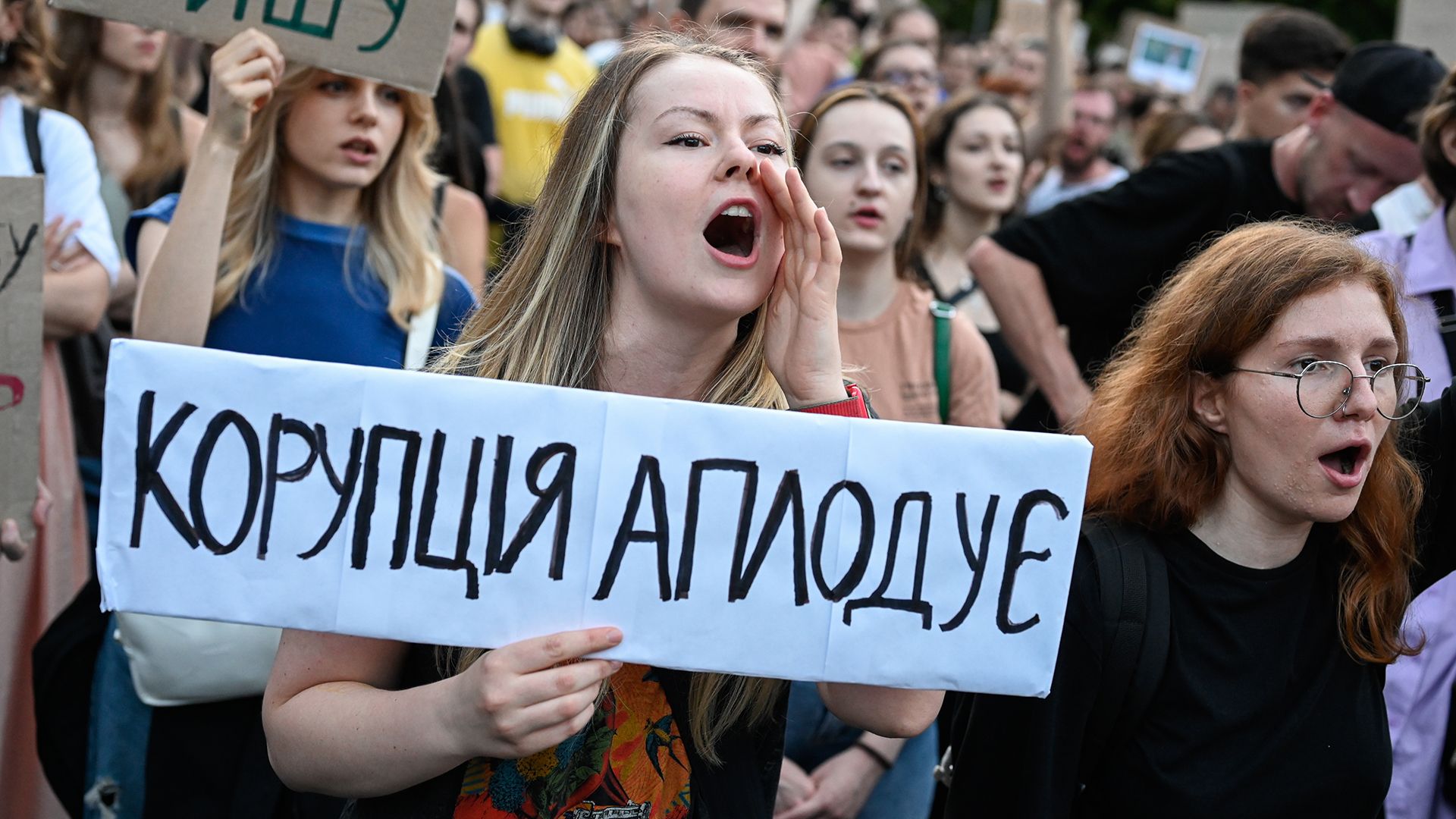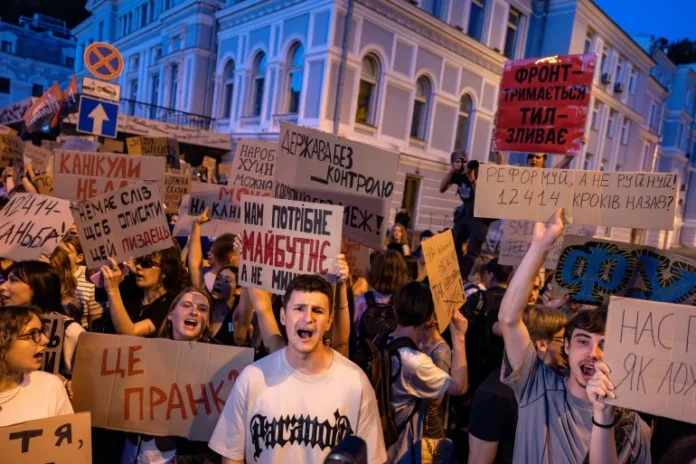Zelenskyy Signs New Law After Protests and EU Warning
On July 31, Ukrainian President Volodymyr Zelenskyy signed a law to return full independence to the country’s main anti-corruption bodies. This came after strong criticism at home and from the European Union. A week earlier, Ukraine’s parliament had passed a law that gave more control over these agencies to the Prosecutor General, raising concerns about political interference.
Lawmakers voted 331 to 0 in favor of restoring independence to the National Anti-Corruption Bureau of Ukraine (NABU) and the Specialized Anti-Corruption Prosecutor’s Office (SAP). The vote was broadcast live for the first time since Russia’s invasion, showing how serious and public the issue had become.
Public Anger and EU Criticism Forced a Change
The earlier law, passed on July 22, had made it possible for the Prosecutor General to control NABU and SAP, including by interfering in their investigations. This decision sparked protests across Ukraine. Many young people joined the demonstrations, saying they felt misled. The protests were among the largest since the war with Russia began.
The European Union also reacted strongly. According to Politico.eu, officials from the European Commission warned that if Ukraine didn’t reverse the law, it could lose access to key EU funding. EU leaders, including Ursula von der Leyen and António Costa, called the new law a “positive step” and stressed that Ukraine must keep working on justice reforms.
Marta Kos, the EU Enlargement Commissioner, said the new law restores important legal safeguards. But she also said that Ukraine still faces problems in fully fighting corruption.
Ukraine Reverses Course, Restores Autonomy
The law that came into effect on August 1 repeals the earlier changes. Now, NABU and SAP are again free to work without interference. According to United24Media.com, the law also requires regular lie detector tests for staff in these agencies.
Both NABU and SAP were created in 2015 after the EuroMaidan protests, with help from Western governments. These agencies were meant to target high-level corruption and are central to Ukraine’s efforts to join the European Union. Over the years, they’ve handled serious cases, including one involving Deputy Prime Minister Oleksiy Chernyshov, who is considered close to Zelenskyy.
Zelenskyy said after signing the law that this step was necessary to allow the anti-corruption agencies and other law enforcement bodies to do their work freely.
Why It Matters

This event shows that Ukraine’s leaders are under close watch from both their citizens and their international allies. The speed with which the government backtracked shows the importance of public pressure and outside influence. At a time when Ukraine is fighting for survival and applying for EU membership, trust in its institutions is more important than ever.
From my point of view, this reversal was not just a smart political move—it was a necessary one. The protests were a strong reminder that Ukrainians expect honesty and transparency, especially during a war. Ignoring these voices would have risked both public trust and international support. The EU’s response also proves that corruption is not just Ukraine’s problem; it’s a shared concern. If Ukraine hopes to join the EU someday, these reforms cannot just be symbolic—they must be lasting.
Sources: politico.eu

